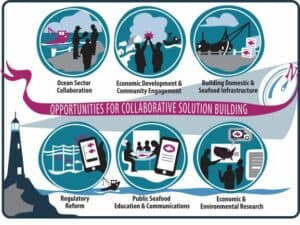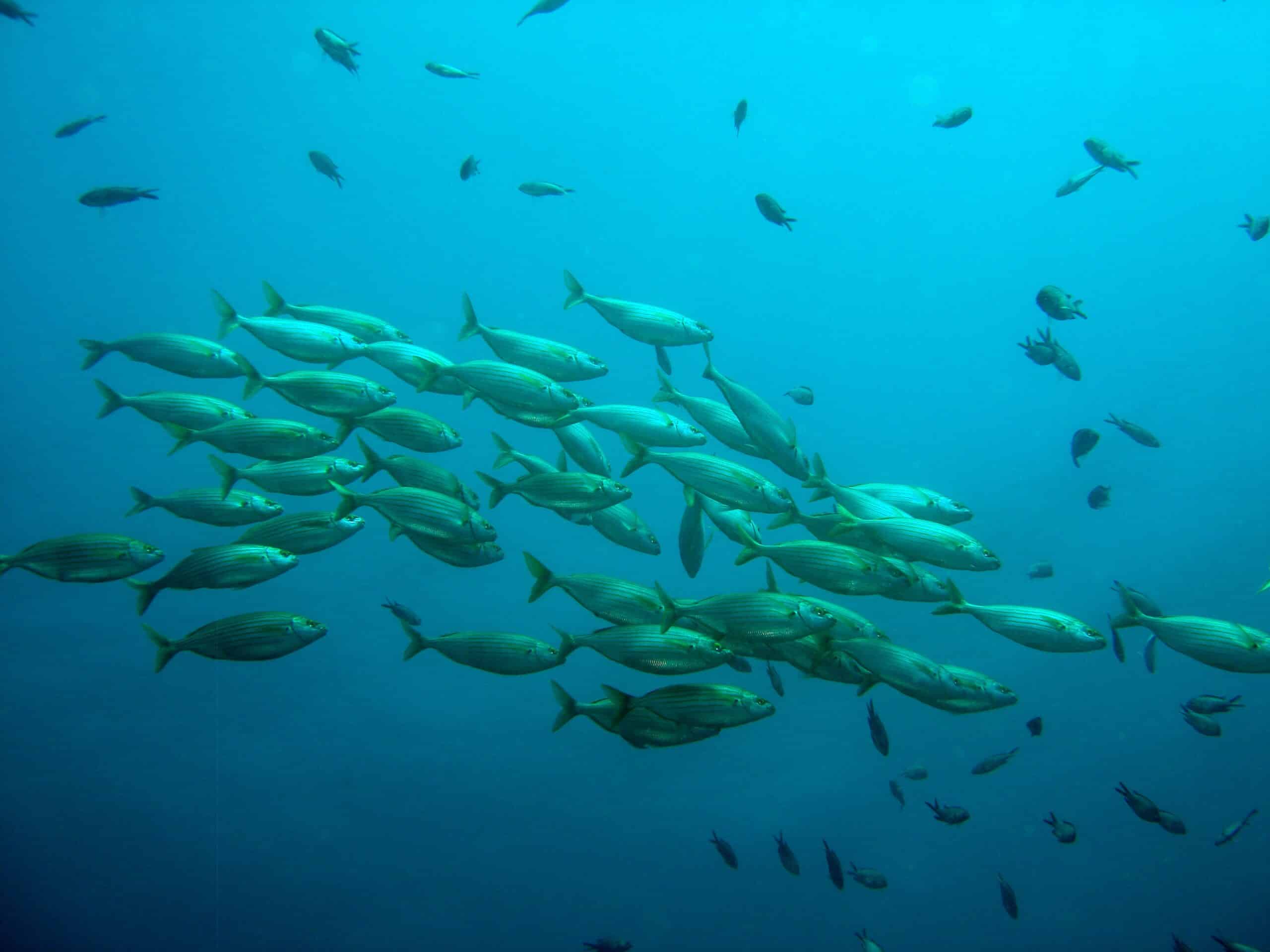Multisector Aquaculture Design Workshop: Charting an Inclusive Future for U.S. Seafood Production
1 September 2022Aquaculture, the farming of seafood, has been around for centuries in many parts of the world. Over the last few years, there has been growing interest among U.S. federal agencies, Congress, investors, companies, and NGOs to build out a domestic marine aquaculture industry. This has sparked local, regional, and national dialogue and highlighted a wide spectrum of stakeholder views on marine aquaculture. Some sectors are excited about the prospect of economic development in working waterfronts and increasing the supply of sustainable protein, while others express concern about how aquaculture farms will impact ocean ecosystems and the economics of commercial fishing.
Since 2019, Meridian has been working to understand the range of stakeholder views on marine aquaculture and create neutral spaces for productive dialogue about the future of our oceans. Our work in this area is grounded on the principle that the benefits of U.S. aquaculture can be best realized if the interests, needs, and concerns of all potentially affected stakeholders are proactively considered. Our work emphasizes relationship-building and perspective-sharing to lay the groundwork for programs and policies that include a wide range of viewpoints.
In April 2022, in partnership with public affairs firm Ocean Strategies, Meridian facilitated a U.S. Marine Aquaculture Design Workshop. We brought together 43 leaders in aquaculture, aquaculture finance, commercial fishing, recreational fishing, the seafood supply chain, and environmental NGOs, plus community and tribal groups. Participants were invited to share concerns and brainstorm approaches that advance shared priorities by reacting to a series of hypothetical farm scenarios. By engaging with hypotheticals, the workshop encouraged constructive dialogue around core stakeholder interests and concerns rather than those tied to policies and legislation, or the dynamics of specific regions.
 Conversations at the workshop were both honest and fruitful. One primary example was an exchange that occurred between representatives from the commercial fishing and aquaculture industry sectors about the regulatory challenges faced by each. Commercial fishing representatives shared their perspectives on the struggles they face balancing compliance with environmental protections and fisheries management rules and ensuring their economic livelihoods. Similarly, aquaculture industry representatives answered questions and addressed misconceptions around the current regulatory structure governing aquaculture. Both sectors discussed the critical need for national investment in seafood infrastructure (e.g., cold storage and processing infrastructure) and how it could benefit the seafood sector broadly.
Conversations at the workshop were both honest and fruitful. One primary example was an exchange that occurred between representatives from the commercial fishing and aquaculture industry sectors about the regulatory challenges faced by each. Commercial fishing representatives shared their perspectives on the struggles they face balancing compliance with environmental protections and fisheries management rules and ensuring their economic livelihoods. Similarly, aquaculture industry representatives answered questions and addressed misconceptions around the current regulatory structure governing aquaculture. Both sectors discussed the critical need for national investment in seafood infrastructure (e.g., cold storage and processing infrastructure) and how it could benefit the seafood sector broadly.
The workshop was very illuminating… a helpful exercise. I’ve already made some connections and had some productive offline discussions and more meaningful connections with fishers. It wouldn’t have happened without this workshop.
– April 2022 workshop participant
To learn more about what was discussed, see the workshop summary report. The workshop built upon over 100 interviews that Meridian and Ocean Strategies conducted previously to understand the array of perspectives on U.S. marine aquaculture, summarized in the Aquaculture Sectoral Insights Summary Brief below.
We believe our interview findings and workshop summary report will be useful to both inform ocean sectors on how to productively engage in conversations around aquaculture development and provide policymakers with a better understanding of various stakeholder needs.

Read the Workshop Report
Learn more about the approach, discussions, and outputs from the U.S. Marine Aquaculture Design Workshop.